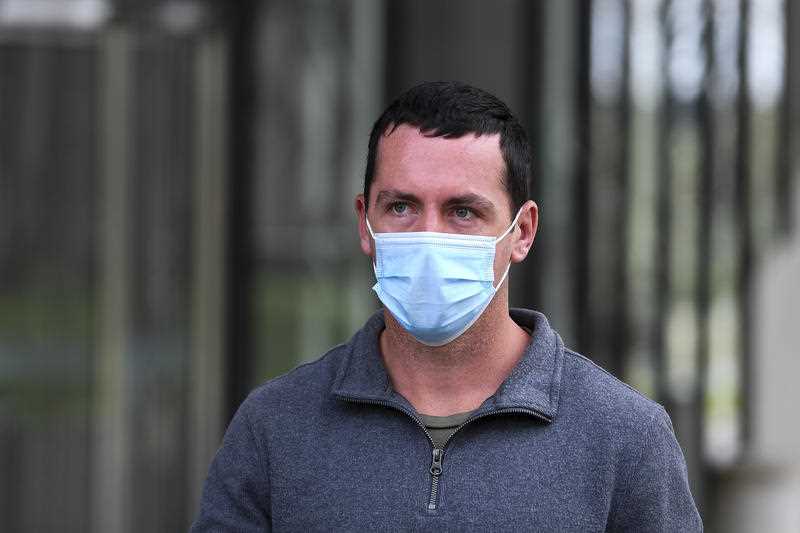Whether a police officer can argue he acted in “good faith” in the alleged murder of an Indigenous man is at the heart of a legal showdown in Australia’s highest court.
Prosecutors are challenging a key tenet of Constable Zachary Rolfe’s defence in his pending trial for the alleged murder of Northern Territory man Kumanjayi Walker.
The 19-year-old was shot three times after stabbing Rolfe with a pair of surgical scissors while being arrested in the remote community of Yuendumu in November 2019.
The full bench of the High Court is determining whether Rolfe can rely on an immunity clause contained in the Northern Territory’s Police Administration Act.
It provides a protection from prosecution for actions performed in “good faith” during the exercise of police power.
Prosecutor Philip Strickland SC argues a liberal construction of the clause risks leaving citizens vulnerable to police abuse or excess.
“It would mean that any activity of a police officer would not be tethered to any notion of reasonableness,” he told the court on Tuesday.
“The significance of an incorrect ruling is that the respondent may be acquitted of murder … on an incorrect basis.”
Mr Strickland said the issue of good faith relied on Rolfe having an honest belief he was using reasonable force to help a colleague arrest Mr Walker.
As well as murder, Rolfe faces the alternative charges of manslaughter and engaging in a violent act causing death.
“The trial is of national importance,” Mr Strickland said.
“The public importance is more poignant when the citizen is Indigenous.
“We’re dealing with how the jury should be directed on a critical issue and we’re asking the court to intervene and resolve a critical issue.”
Acting for Rolfe, Bret Walker SC argued the prosecutor’s special leave to appeal against part of the officer’s defence risked fragmenting the criminal process.
“This is a good, by which we mean egregious, example of threatened fragmentation of the criminal process … that this court would tend strongly against,” he said.
The barrister labelled the fact Rolfe might be acquitted “not a reason crying out for special leave to appeal”.
He argued police regularly had to make split-second decisions.
“But you may be wrong in the sense that what you perceived to be a deadly fracas may be nothing more than horseplay,” the barrister said.
“(The immunity clause) ensures there will not be the removal of protection … because the facts were not as they were perceived to be.”
The High Court reserved its decision.
Rolfe’s trial has been pushed back multiple times.
In August, the court agreed to a stay of proceedings pending the determination of his defence.
The case was dealt a further delay the following month when the Northern Territory judge overseeing it announced his retirement.
By Georgie Moore in Canberra, AAP
Get all the latest Canberra news, sport, entertainment, lifestyle, competitions and more delivered straight to your inbox with the Canberra Daily Daily Newsletter. Sign up here.



